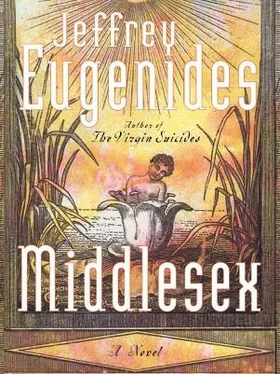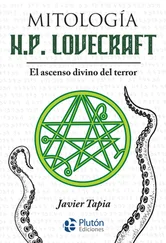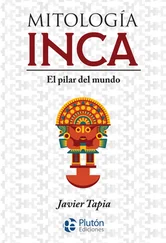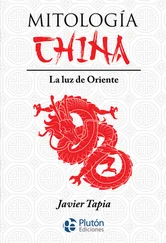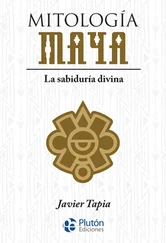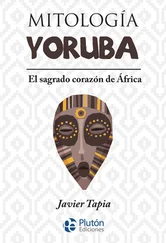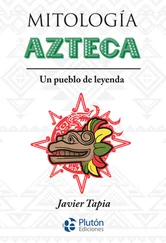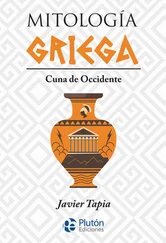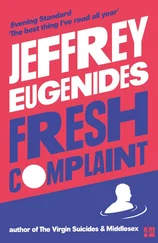As does my story.
Because now Chapter Eleven, my five-year-old brother, and Jimmy Papanikolas are each holding a red egg. Dyed the color of the blood of Christ, more eggs fill a bowl on the dining room table. Red eggs are lined along the mantel. They hang in string pouches over doorways.
Zeus liberated all living things from an egg. Ex ovo omnia . The white flew up to become the sky, the yolk descended into earth. And on Greek Easter, we still play the egg-cracking game. Jimmy Papanikolas holds his egg out, passive, as Chapter Eleven rams his egg against it. Always only one egg cracks. “I win!” shouts Chapter Eleven. Now Milton selects an egg from the bowl. “This looks like a good one. Built like a Brinks truck.” He holds it out. Chapter Eleven prepares to ram it. But before anything happens, my mother taps my father on the back. She has a thermometer in her mouth.
As dinner dishes are cleared from the table downstairs, my parents ascend hand in hand to their bedroom. As Desdemona cracks her egg against Lefty’s, my parents shuck off a strict minimum of clothing. As Sourmelina, back from New Mexico for the holidays, plays the egg game with Mrs. Watson, my father lets out a small groan, rolls sideways off my mother, and declares, “That should do it.”
The bedroom grows still. Inside my mother, a billion sperm swim upstream, males in the lead. They carry not only instructions about eye color, height, nose shape, enzyme production, microphage resistance, but a story, too. Against a black background they swim, a long white silken thread spinning itself out. The thread began on a day two hundred and fifty years ago, when the biology gods, for their own amusement, monkeyed with a gene on a baby’s fifth chromosome. That baby passed the mutation on to her son, who passed it on to his two daughters, who passed it on to three of their children (my great-great-greats, etc.), until finally it ended up in the bodies of my grandparents. Hitching a ride, the gene descended a mountain and left a village behind. It got trapped in a burning city and escaped, speaking bad French. Crossing the ocean, it faked a romance, circled a ship’s deck, and made love in a lifeboat. It had its braids cut off. It took a train to Detroit and moved into a house on Hurlbut; it consulted dream books and opened an underground speakeasy; it got a job at Temple No. 1 . . . And then the gene moved on again, into new bodies . . . It joined the Boy Scouts and painted its toenails red; it played “Begin the Beguine” out the back window; it went off to war and stayed at home, watching newsreels; it took an entrance exam; posed like the movie magazines; received a death sentence and made a deal with St. Christopher; it dated a future priest and broke off an engagement; it was saved by a bosun’s chair . . . always moving ahead, rushing along, only a few more curves left in the track now, Annapolis and a submarine chaser . . . until the biology gods knew this was their time, this was what they’d been waiting for, and as a spoon swung and a yia yia worried, my destiny fell into place . . . On March 20, 1954, Chapter Eleven arrived and the biology gods shook their heads, nope, sorry . . . But there was still time, everything was in place, the roller coaster was in free fall and there was no stopping it now, my father was seeing visions of little girls and my mother was praying to a Christ Pantocrator she didn’t entirely believe in, until finally—right this minute!—on Greek Easter, 1959, it’s about to happen. The gene is about to meet its twin.
As sperm meets egg, I feel a jolt. There’s a loud sound, a sonic boom as my world cracks. I feel myself shift, already losing bits of my prenatal omniscience, tumbling toward the blank slate of personhood. (With the shred of all-knowingness I have left, I see my grandfather, Lefty Stephanides, on the night of my birth nine months from now, turning a demitasse cup upside down on a saucer. I see his coffee grounds forming a sign as pain explodes in his temple and he topples to the floor.) Again the sperm rams my capsule; and I realize I can’t put it off any longer. The lease on my terrific little apartment is finally up and I’m being evicted. So I raise one fist (male-typically) and begin to beat on the walls of my eggshell until it cracks. Then, slippery as a yolk, I dive headfirst into the world.
“I’m sorry, little baby girl,” my mother said in bed, touching her belly and already speaking to me. “I wanted it to be more romantic.”
“You want romantic?” said my father. “Where’s my clarinet?”
My eyes, switched on at last, saw the following: a nurse reaching out to take me from the doctor; my mother’s triumphant face, as big as Mount Rushmore, as she watched me heading for my first bath. (I said it was impossible, but still I remember it.) Also other things, material and immaterial: the relentless glare of OR lights; white shoes squeaking over white floors; a housefly contaminating gauze; and all around me, up and down the halls of Women’s Hospital, individual dramas under way. I could sense the happiness of couples holding first babies and the fortitude of Catholics accepting their ninth. I could feel one young mother’s disappointment at the reappearance of her husband’s weak chin on the face of her newborn daughter, and a new father’s terror as he calculated the tuition for triplets. On the floors above Delivery, in flowerless rooms, women lay recovering from hysterectomies and mastectomies. Teenage girls with burst ovarian cysts nodded out on morphine. It was all around me from the beginning, the weight of female suffering, with its biblical justification and vanishing acts.
The nurse who cleaned me up was named Rosalee. She was a pretty, long-faced woman from the Tennessee mountains. After suctioning the mucus from my nostrils, she gave me a shot of vitamin K to coagulate my blood. Inbreeding is common in Appalachia, as are genetic deformities, but Nurse Rosalee noticed nothing unusual about me. She was concerned about a purple splotch on my cheek, thinking it was a port-wine stain. It turned out to be placenta, and washed off. Nurse Rosalee carried me back to Dr. Philobosian for an anatomical exam. She placed me down on the table but kept one hand on me for security’s sake. She’d noticed the doctor’s hand tremor during the delivery.
In 1960, Dr. Nishan Philobosian was seventy-four. He had a camel’s head, drooping on its neck, with all the activity in the cheeks. White hair surrounded his otherwise bald head in a nimbus and plugged his big ears like cotton. His surgeon’s eyeglasses had rectangular loupes attached.
He began with my neck, searching for cretinous folds. He counted my fingers and toes. He inspected my palate; he noted my Moro reflex without surprise. He checked my backside for a sacral tail. Then, putting me on my back again, he took hold of each of my curved legs and pulled them apart.
What did he see? The clean, saltwater mussel of the female genitalia. The area inflamed, swollen with hormones. That touch of the baboon all babies have. Dr. Philobosian would have had to pull the folds apart to see any better, but he didn’t. Because right at that instant Nurse Rosalee (for whom the moment was also destiny) accidentally touched his arm. Dr. Phil looked up. Presbyopic, Armenian eyes met middle-aged, Appalachian ones. The gaze lingered, then broke away. Five minutes old, and already the themes of my life—chance and sex—announced themselves. Nurse Rosalee blushed. “Beautiful,” Dr. Philobosian said, meaning me but looking at his assistant. “A beautiful, healthy girl.”
On Seminole, the birth celebrations were tempered by the prospect of death.
Desdemona had found Lefty on our kitchen floor, lying next to his overturned coffee cup. She knelt beside him and pressed an ear to his chest. When she heard no heartbeat, she cried out his name. Her wail echoed off the kitchen’s hard surfaces: the toaster, the oven, the refrigerator. Finally she collapsed on his chest. In the silence that followed, however, Desdemona felt a strange emotion rising inside her. It spread in the space between her panic and grief. It was like a gas inflating her. Soon her eyes snapped open as she recognized the emotion: it was happiness. Tears were running down her face, she was already berating God for taking her husband from her, but on the other side of these proper emotions was an altogether improper relief. The worst had happened. This was it: the worst thing. For the first time in her life my grandmother had nothing to worry about.
Читать дальше
Конец ознакомительного отрывка
Купить книгу
